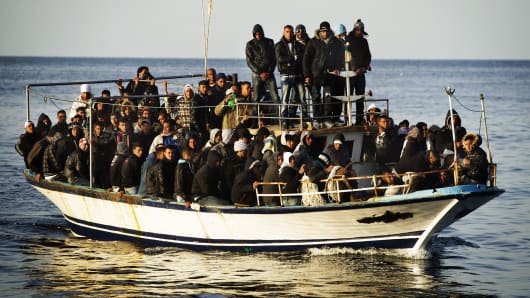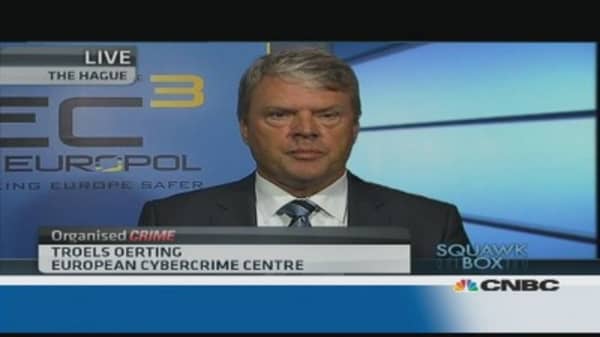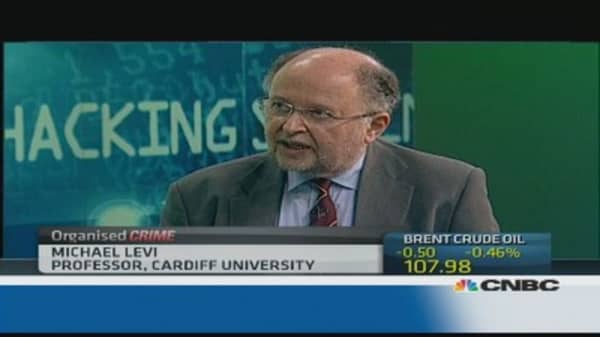Financial difficulties and social unrest may be the least of Europe's problems, according to crime experts, who warn that the continent's economic struggles mean it risks an escalation in human trafficking, counterfeit products and illegal migration.
"European member states are underprepared for the scale of organized crime in the European Union [EU]… We are facing a threat that only now we are beginning to understand – let alone respond to," said Charlie Edwards, the director of national security and resilience at the Royal United Services Institute for Defense and Security Studies in London.
(Read more: Organized crime: World's most lucrative criminal activities)
Edwards said Europe was already suffering from an explosion in counterfeit goods, partly driven by the global recession. Worryingly, fake medicines constituted the majority of detained items in the EU, according to Edwards, followed by packaging materials and cigarettes.
"The economic crisis means that, for many, money is tight. Nonetheless, there are certain products both companies and individuals still need," explained Matti Joutsen, the director of the European Institute for Crime Prevention and Control, which is based in Helsinki.
"If they cannot afford to pay over-the–counter prices for legitimate goods, then they may — depending on the supply — accept counterfeit goods."
The trade in fake goods is no longer focused on luxury items such as Dior handbags and Rolex watches, said Joutsen, but runs the entire gamut of products, "from medicines cosmetics and food, to electronic components and spare parts".
He added: "It's rather unsettling to know that the airplane you are flying in may have been serviced by a mechanic who was trying to save the airline money by buying something in the gray or black market."
Human trafficking
Michael Rauschenbach, head of serious and organized crime at Europol, the EU's law enforcement agency, said the same economic pressures that increase demand for low-cost products also generate a need for cheap — and sometimes illegal — labor.
"We see that in the trafficking of human beings — a continued threat — this may shift from classical sexual exploitation, to labor," he told CNBC.
(Read more: Saudi princess charged with US human trafficking)
In its 2013 report on organized crime, Europol said the growing demand for cheap products and services was stimulating a shadow economy in which migrant labor was exploited.
"Irregular migrants arriving in destination countries often have no choice but to accept exploitative conditions and working practices in order to pay off debts incurred through their journey," the report said. "Exploited workers are paid less and work harder, making them attractive to unscrupulous employers, who are seeking to decrease production costs."
In its report, Europol noted that a large population of "mobile young people" from Africa, the Middle East and East Asia, who lacked employment opportunities, helped sustain the supply of illegal labor to Europe. The United Nations Office on Drugs and Crime estimated that around 55,000 migrants are smuggled from North, East and West Africa alone to Europe each year, generating roughly $150 million in criminal income.
(View more: Illegal aliens could power US economy: Hermes CEO)
"The economic crisis has caused considerable difficulties in many developing countries, and there have been considerable layoffs," noted Joutsen.
"Although we cannot say for sure, it would be reasonable to assume that, since persons who are unemployed may, out of desperation and/or naiveté, believe the promises that are given to them by the human traffickers, this form of activity has been increasing," he said.
Rauschenbach added that macroeconomic difficulties, such as high unemployment and low profit margins, could increase social tolerance of criminal activity. This means that individuals and businesses are more likely to commit certain crimes, and also more likely to fall victim to them.






